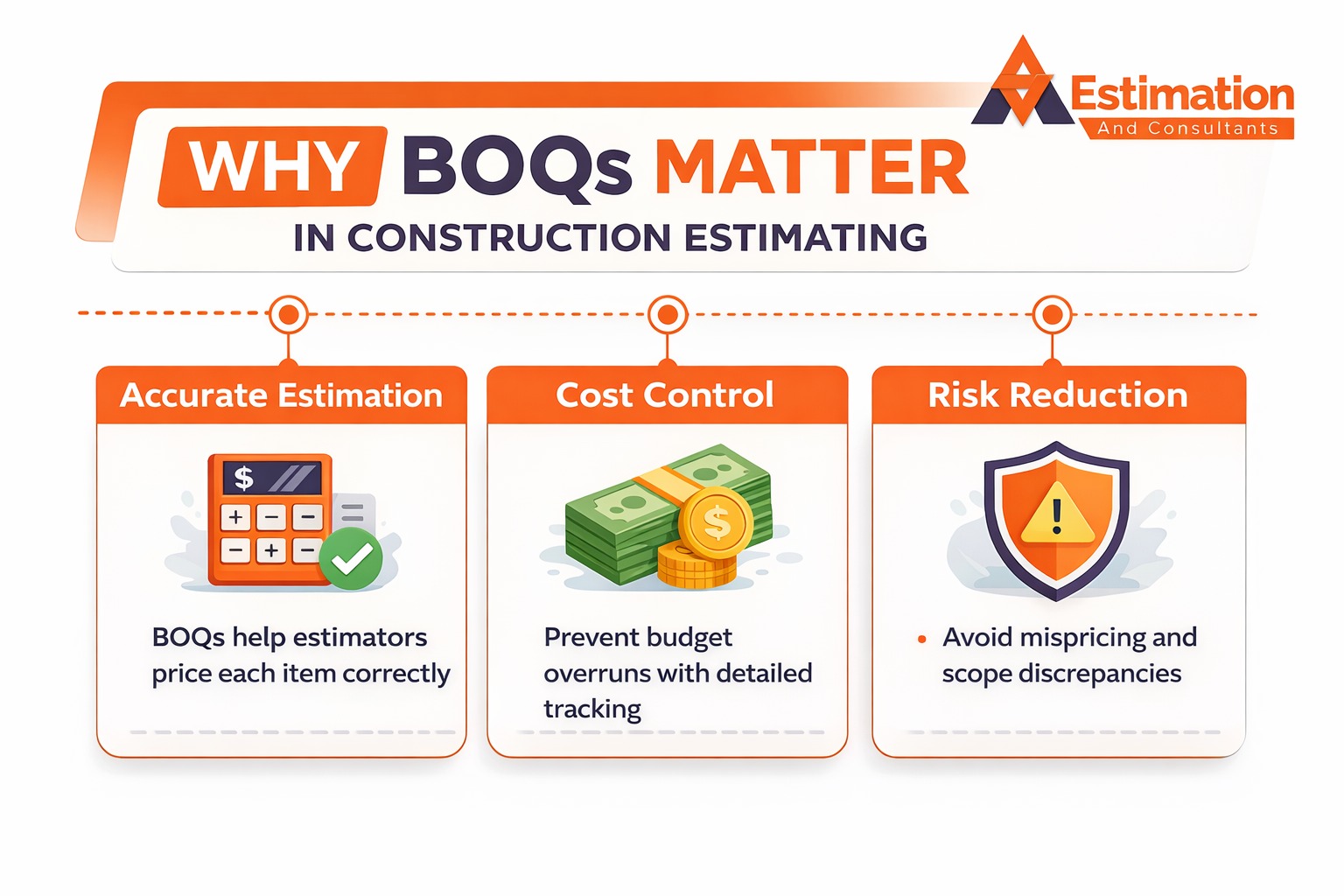Professional estimating services provide a critical foundation for project planning. They offer businesses the accuracy and insight needed to allocate budgets effectively, control costs, and identify potential risks before they arise. By understanding the components of a professional estimating service, you can make an informed decision when selecting a provider and appreciate the unique value these services bring to projects across various industries. This guide explores the essential elements included in a professional estimating service, from initial consultations to detailed cost analyses.
Initial Consultation and Needs Assessment
A reliable estimating service typically begins with a comprehensive consultation to assess the client’s project needs, scope, and objectives. This stage involves key discussions and assessments that lay the groundwork for accurate estimates.

Understanding Project Scope and Objectives
During the consultation, estimators discuss the project’s goals, desired outcomes, and scope, helping ensure clarity between both parties. This step includes evaluating the project’s scale, specific requirements, and any complexities that might impact the estimate, such as design intricacies or unique material needs.
Identifying Key Project Requirements
Estimators also gather specific information on materials, labor, equipment, and timeline requirements. By asking detailed questions, they can determine what is essential for the project’s success and assess any additional factors that might impact the final estimate. This stage helps avoid overlooked details that could affect the project’s budget or timeline.
Detailed Cost Analysis and Breakdown
Once the consultation and needs assessment are complete, professional estimating services provide a detailed cost analysis, offering transparency into all costs associated with the project.

Material Costs
One of the primary components of any estimate is the cost of materials. Professional estimators conduct research to determine the best prices for quality materials, considering aspects such as market fluctuations and potential suppliers. This breakdown ensures that clients understand the exact material costs, from construction supplies to specialized components.
Labor Costs
Labor is a major expense in most projects, and a professional estimating service will offer a precise breakdown of labor costs based on skill requirements and project demands. Estimators assess the labor force needed, including specialized trades, and estimate the time required to complete each phase of the project. This information is critical for setting realistic timelines and budgeting for workforce needs.
Equipment and Machinery Costs
For projects requiring specialized equipment or machinery, estimators calculate the associated rental or purchase costs. This ensures that all required equipment is accounted for, preventing budget overruns and avoiding delays due to equipment unavailability.
Risk Assessment and Contingency Planning
An often overlooked aspect of professional estimating services is their ability to identify potential risks and establish contingency plans. Risk assessment helps prepare clients for unforeseen issues that may affect costs or timelines.

Identifying Potential Risks
Estimators assess potential risks that could impact the project, such as weather delays, supply chain disruptions, or regulatory issues. By analyzing these factors, estimators help clients prepare for possible obstacles, reducing the likelihood of project interruptions.
Allocating Contingency Funds
Based on the identified risks, estimators recommend a contingency fund to cover unexpected costs. This allocation allows for greater budget flexibility, ensuring that unforeseen expenses do not derail the project. Generally, contingency funds are expressed as a percentage of the total project cost, tailored to the project’s complexity and risk factors.
Timeline and Scheduling
A professional estimate also includes a detailed timeline and schedule, outlining the project’s start and end dates and key milestones. This schedule is a roadmap that guides project managers and helps ensure the project progresses smoothly.

Setting Realistic Timelines
Experienced estimators use project data and historical information to set achievable timelines. By doing so, they help prevent unrealistic deadlines, which can lead to rushed work, errors, and budget overruns. The timeline includes estimates for each project phase, making it easy for clients to track progress.
Milestones and Progress Tracking
Estimates often include suggested milestones, which serve as checkpoints for tracking project completion. These milestones help clients monitor the project’s status and address issues as they arise, ensuring timely project delivery.
Scope of Work and Deliverables
To ensure alignment between client expectations and project outcomes, professional estimators provide a clear scope of work (SOW) and list of deliverables. This section of the estimate defines what is and is not included, helping to prevent misunderstandings.

Detailed Scope of Work
The scope of work outlines the specific tasks, activities, and responsibilities involved in the project. This document serves as a comprehensive roadmap, detailing every component and activity necessary to complete the project according to specifications.
Defining Project Deliverables
Estimators specify the deliverables clients can expect upon project completion, which could include reports, completed installations, or other tangible outcomes. Clear deliverables help both clients and service providers understand the project’s end goals.
Compliance and Permitting Costs
For projects requiring permits, regulatory compliance, or adherence to industry standards, professional estimating services include these additional costs.

Obtaining Necessary Permits
Depending on the project location and type, certain permits may be required to proceed legally. Estimators help identify required permits, and they account for related costs in the estimate, avoiding legal issues and project delays.
Regulatory Compliance
Compliance with building codes and safety standards can involve additional expenses, which estimators account for in their analysis. By budgeting for compliance costs, estimating services help ensure that projects meet regulatory requirements without unexpected costs.
Regular Updates and Revisions
Professional estimators understand that project parameters can change, which is why they offer flexibility through updates and revisions. This ensures estimates remain accurate even if there are changes in scope, materials, or timelines.

Adapting to Changes in Project Scope
If project scope adjustments occur, professional estimators reassess the estimate to account for the new requirements. This adaptability helps clients manage budget changes without compromising project quality.
Real-Time Cost Tracking
Some estimating services offer real-time cost tracking, allowing clients to monitor spending and avoid budget overruns. This feature provides transparency and helps clients make informed financial decisions as the project progresses.
Final Report and Estimate Delivery
Upon completing all evaluations and cost calculations, professional estimating services provide a final report, which serves as the official estimate. This report is presented in a clear and accessible format, making it easy for clients to review and understand.

Comprehensive Cost Report
The final report includes all costs, timelines, and contingencies in a single document, giving clients a complete overview of the project budget. Professional estimators ensure this report is user-friendly, making it easy for clients to reference throughout the project.
Presentation of Findings and Recommendations
Estimators often offer a presentation of their findings and recommendations, walking clients through each cost factor and addressing any questions. This transparency builds client confidence in the estimate and allows for any last-minute clarifications before project initiation.
Conclusion
Professional estimating services encompass a range of valuable components that go beyond simple cost calculations. From initial consultations and risk assessments to compliance costs and final reports, these services provide essential support for planning, budgeting, and executing successful projects. Working with a reputable estimation provider ensures that you have the detailed insights needed to make informed decisions, minimize risks, and maintain control over your budget.
For reliable, detail-oriented estimating support tailored to your project’s unique needs, AS Estimation & Consultants is here to help you achieve precision and success.


